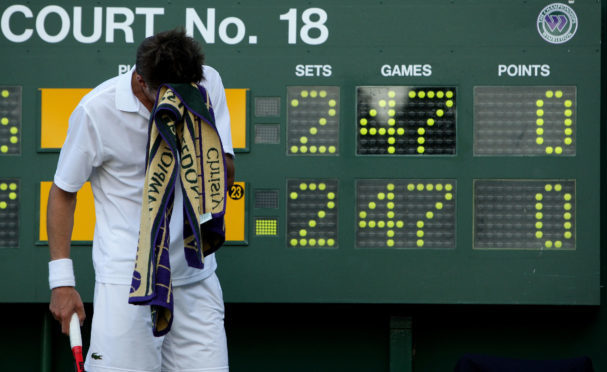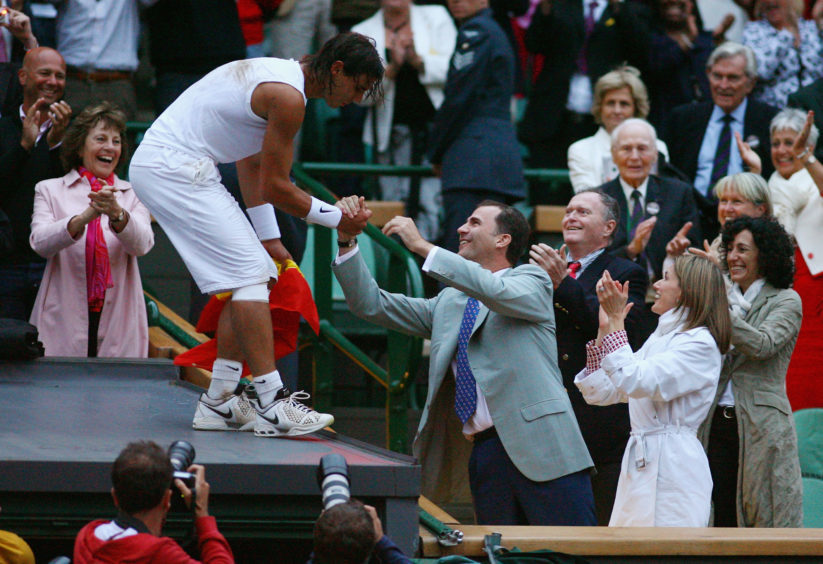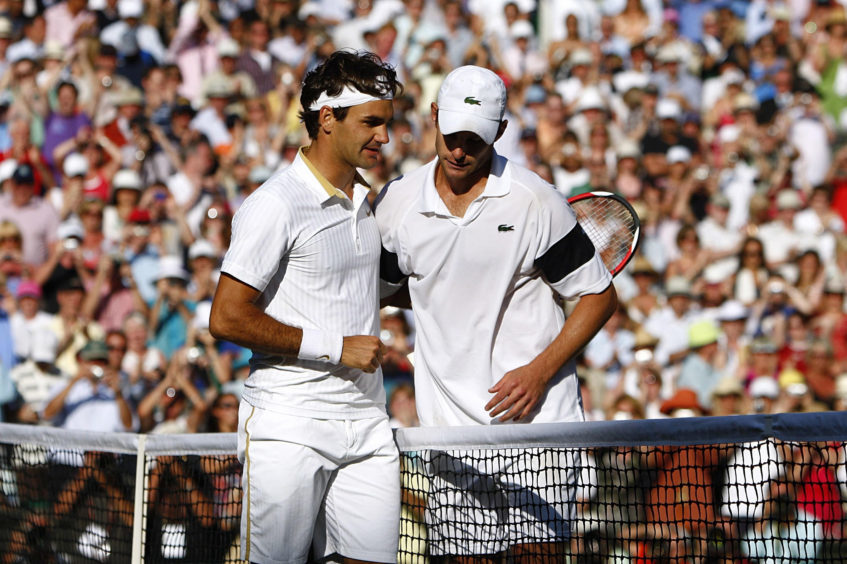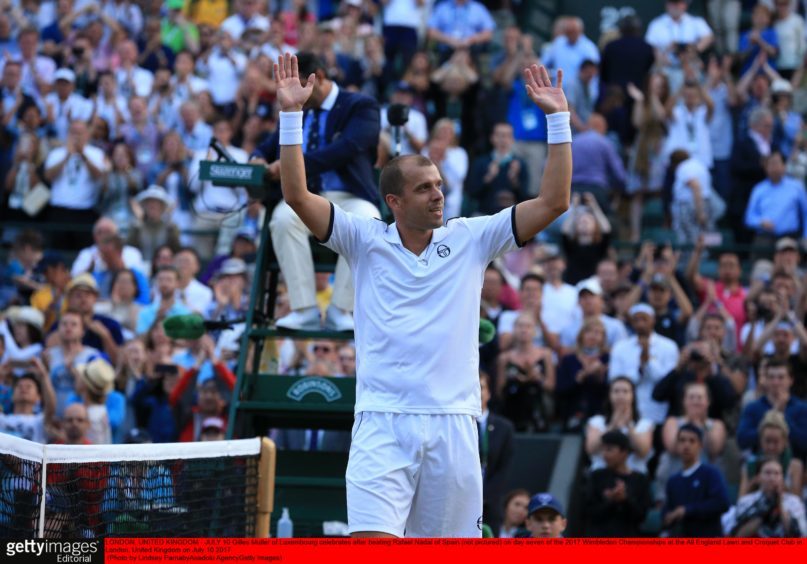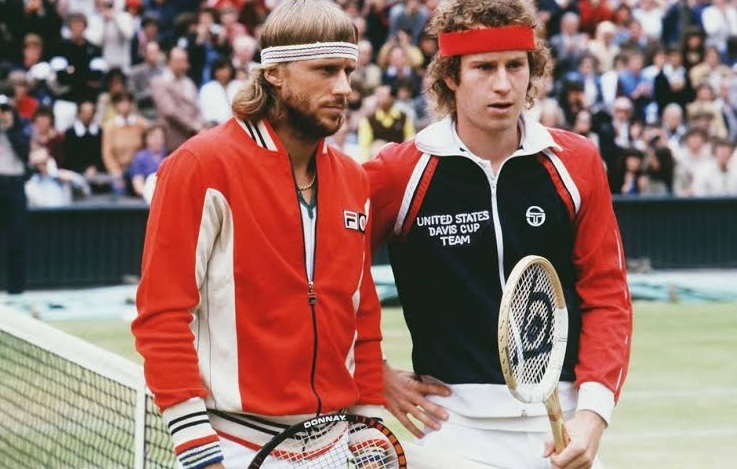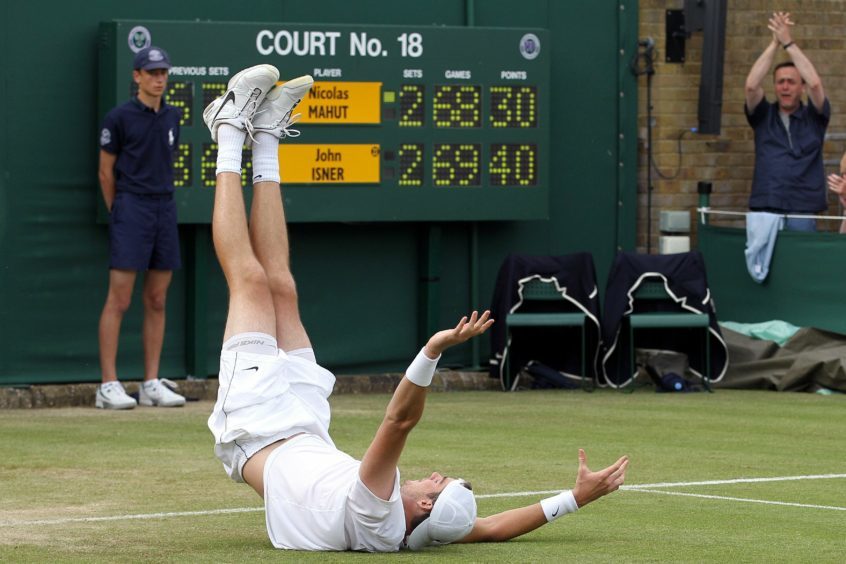John Isner and Nicolas Mahut’s 11-hour Wimbledon marathon is a match that will never be forgotten by tennis fans.
And now, thanks to an announcement from the All England Club today, it will forever go down as the longest match in Wimbledon’s history.
The decision to introduce a tiebreak at 12-12 in the fifth set has been warmly welcomed, even if some people are unhappy that they aren’t just being played at 6-6 like they are in the US Open.
This year’s semi-final between Kevin Anderson and Isner, whose big-serving style means he has been caught in a few of these epic encounters down the years, was won 26-24 by the South African.
The 32-year-old was obviously elated at reaching his first Wimbledon final but Anderson was quick to take a swipe at the rule that meant he was completely burnt out by the time he had to play the final against Novak Djokovic less than 48 hours later.
A considerably fresher Djokovic swatted aside Anderson, who had earlier dumped then-world number one Roger Federer out in the quarter-finals, in straight sets.
Isner too, has long called for final set tiebreaks to be introduced. No wonder, given some of his matches have turned into tests of physical endurance as much as they have been about technical skill.
While Anderson’s 26-24 win was no doubt impressive, most fans on Centre Court in July would have been mostly annoyed that the marathon serving duel ended up postponing the tournament’s other semi-final.
Especially since that match was a much tastier matchup involving Rafael Nadal and Djokovic.
There has been fairly widespread agreement that some change is required. Not just to protect the health of players but to protect the value of the sport to spectators.
Nevertheless, the classic format has produced some amazing matches down the years. So let’s look at a few.
Rafael Nadal def Roger Federer 6-4- 6-4 6-7 6-7 9-7, 2008 final
This will probably go down as one of, if not the greatest match in the history of the sport. Two of the game’s greats at pretty much their peak, both chasing their own bit of history.
Going into the tournament, these two had claimed 14 of the previous 16 grand slam titles and their rivalry had already grown into one of the sport’s most storied.
Federer was hoping to eclipse Bjorn Borg’s record of five consecutive Wimbledon titles while Nadal had just won his fourth consecutive French Open.
Nadal was also hoping to become only the third man in tennis’s Open Era, after Rod Laver and Borg, to complete a French Open and Wimbledon double in the same season.
Having defeated Nadal in the previous two Wimbledon finals, the smart money was on Federer going in but it was the Spaniard who claimed the first two sets.
With his record-breaking hopes on the line, Federer fought tooth-and-nail and appeared to regain the momentum after levelling at two sets all during one the all-time classic tiebreaks in the fourth set, saving a Championship point with a stunning backhand en route.
The deciding set ebbed and flowed, there was even a rain delay thrown in, before Nadal broke Federer in the 15th game and then held his serve out for a 9-7 win with darkness approaching.
The image of him climbing up to his family and friends – and being embraced by the Crown Prince Felipe of Spain – is probably a huge part of why the new rule change has the tiebreak coming in at 12-12 instead of 6-6, because it would have been criminal to have missed out on this.
Roger Federer def Andy Roddick 5–7 7–6 7–6 3–6 16–14, 2009 final
Federer’s skills are well-known but his mental strength often doesn’t get the credit it deserves.
The 2008 loss to Nadal clearly scarred him but a year later, facing another player he had already beaten in two Wimbledon finals and being dragged into another fifth set epic, you wondered whether he could cope mentally.
And in truth, Roddick should have won this. He had two break chances at 8-8 in the fifth but couldn’t take advantage.
In the 30th game of the fifth set, Federer finally broke through and this remains the only grand slam final where a player has lost the match despite only losing his serve once.
Gilles Muller def Rafael Nadal 6-3 6-4 3-6 4-6 15-13, 2017 fourth round
Another one we would have missed out if the new rule had been in force.
Nadal had been written off on grass after several early-round exits but he looked in fine form heading into this one with 34-year-old Luxembourgish lefty Gilles Muller.
The Spaniard fought back from two sets down and was under constant pressure during a drama-filled fifth set before Muller eventually triumphed.
Like most players who win in marathon encounters, he had little left in the tank as he was beaten by Marin Cilic in the last eight two days later.
Bjorn Borg def John McEnroe 1-6 7-5 6-3 6-7 8-6, 1980 final
Another reason why people don’t watch to ditch the win-by-two rule altogether at Wimbledon.
Swede Bjorn Borg’s cool and composed character was directly in contrast with highly-strung American John McEnroe.
Borg was going for his fifth straight title and McEnroe pushed him to the limit before going down in the fifth set. Their epic fourth set tiebreak ended 18-16 to McEnroe and was the tournament’s longest ever at the time.
McEnroe got his revenge the following year, winning his first title after a four set victory against Borg in the final. Borg walked off the court and out of the stadium before the ceremonies and press conference had begun, and retired shortly afterwards.
John Isner def Nicolas Mahut 6–4, 3–6, 6–7, 7–6, 70–68, 2010 first round
We’ve saved the best for last, at least in terms of longevity.
It would be fair to say that the quality and drama of this one is not up to the matches listed above. However, the sheer physicality of these two men battling for more than 11 hours has to be admired.
6ft 10in Isner’s huge serve coupled with his comparably poor movement was the main ingredient in making it such a long affair.
Mahut’s serve was huge too, he did serve 103 aces to Isner’s 113 after all, and the inability for either man to make in-roads while returning made this a record-breaker.
A plaque commemorating the incredible match remains in place at Wimbledon’s Court 18.
An exhausted Isner went down to Thiemo de Bakker in the second round 0-6 3-6 2-6 in just 74 minutes.
